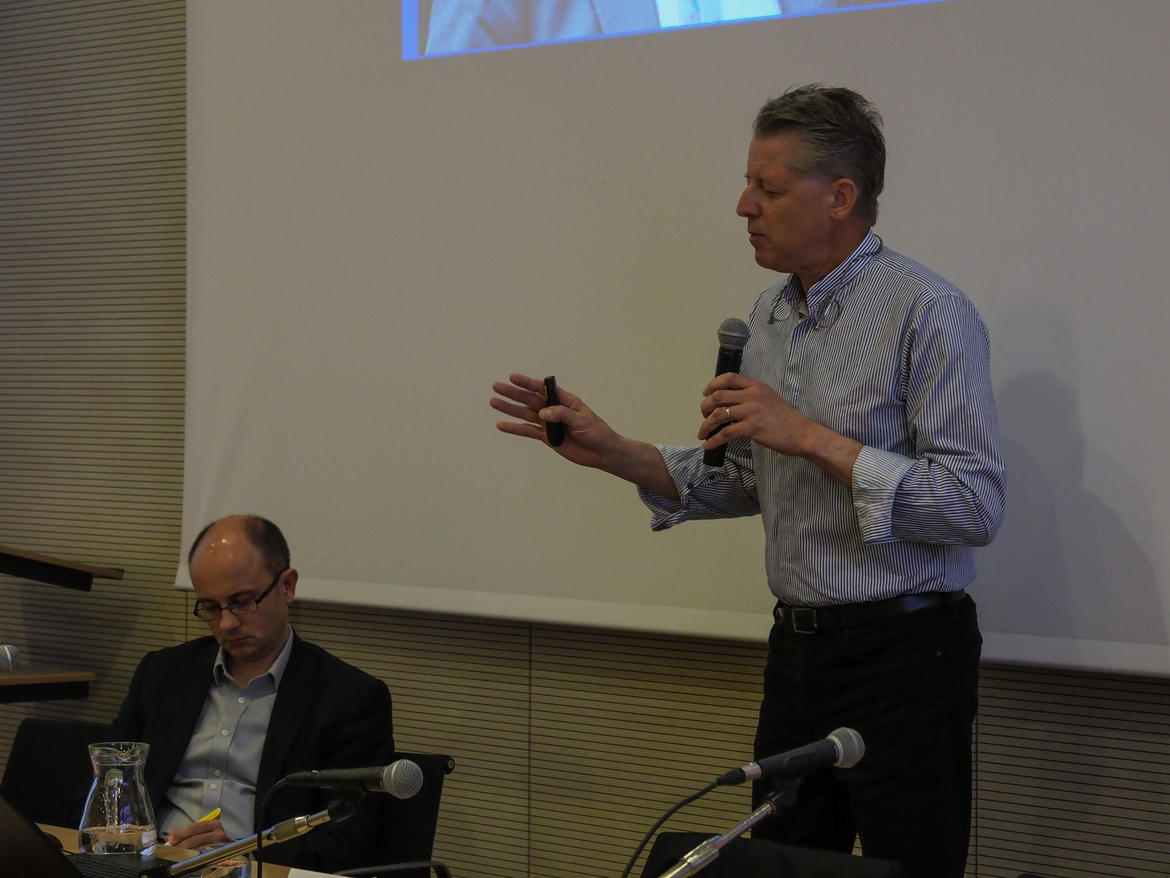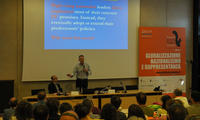
In one of the Festival's most exhilarating discussions, Princeton University's Andrew Moravcsik delivered an enriching argument as to why populist foreign policy is unsustainable.
For Moravcsik, he argues that there is a current political constraint that simply is inevitable for populists to encounter if they ever even get elected- often in the form of domestic coalitions or international cooperation. Once they do realize that their foreign policy plans are incompatible, populists must adapt accordingly.
However, Moravcsik's argument is pointed primarily at major foreign policy issues. He listed only a few caveats and exceptions to his argument that are primarily minor issues. For example, symbolic or incomplete policies, such as the U.S. moving its embassy to Jerusalem, fall under this category. Policies favored by the public majority or have partisan support, such as EU migration quotas, are also considered minor caveats.
According to his argument, populists are able to get away with these minor caveats because they aren't significant. However, it's also because populists strategically operate using one set of incentives when addressing voters on foreign policy compared to a completely different one when they are actually implementing foreign policy doctrine.
When addressing voters, Moravcsik says populists use two distinct approaches to addressing foreign policy. The first is exploiting national goals based on common values, interests and policy solutions in a simplistic, intuitive, and consensual way. For example, the public will always respond to symbols such as sovereignty, independence, and being a nation. As Moravcsik put it, "what kind of American wouldn't want to make America great again", referring to Donald Trump's trademark phrase.
The second approach was based on the conflictual nature of international negotiations. The more determined and stronger countries will generally prevail. Moravcsik used the Brexit campaign as a prime example of this method. He cited the aggressive behavior of Brexiteers, who try to insist to citizens that even though their goals are ambitious, they "care more", "are tougher", and "will fight harder [for you as a citizen of the UK]" than other parties would.
Moravcsik continued by explaining why populist foreign policies actually fail once they are implemented. Once, or if, they win elections, populists must implement their foreign policy plan. However, depending on the country, they must adapt and change their views because they simply aren't compatible with the international community. "When you implement foreign policy, you're dealing with other countries no matter what," Moravcsik said. This always has future political and economic implications that, no matter how much a populist may want to push a policy through, do not allow for such behavior.
He offered two examples: First, Donald Trump's biggest campaign promises was to pull all U.S. troops from Afghanistan. After 7 or 8 months in office, he changed his opinion entirely. Second, Marine Le Pen was calling for FREXIT and an exit from the eurozone ten years ago, but today has completely renounced those claims.
Additionally, several European populist governments countries are often in power due to a coalition. The coalition itself already generally waters down the populist party's views. Moravcsik offered an example when he met Austrian Chancellor Sebastian Kurz. "I asked him, 'how is it ruling with a far right party'", Moravcsik said. "Kurz said, 'It's fine. They just want to make some noise, have a few more ministers in government, and change a few immigration policies- which I agree with'. Basically, they got a few things they wanted and Kurz's party was handling the serious policy decisions."
Moravcsik concluded his lecture with the response to the question of why so many people fear that populists are a legitimate threat to the "liberal world order". For the general public, Moravcsik says there is no incentive for an opinion. In fact, the reason why this "fear" seems to dominate is mostly due to the actions and voices of populist parties, their opponents, and the media. After all, according to Moravcsik, populists are "all bark, no bite".
Website: https://2019.festivaleconomia.eu/home
Twitter: https://twitter.com/economicsfest
Facebook: http://www.facebook.com/festivaleconomiatrento
Instagram: https://www.instagram.com/festivaleconomia/










